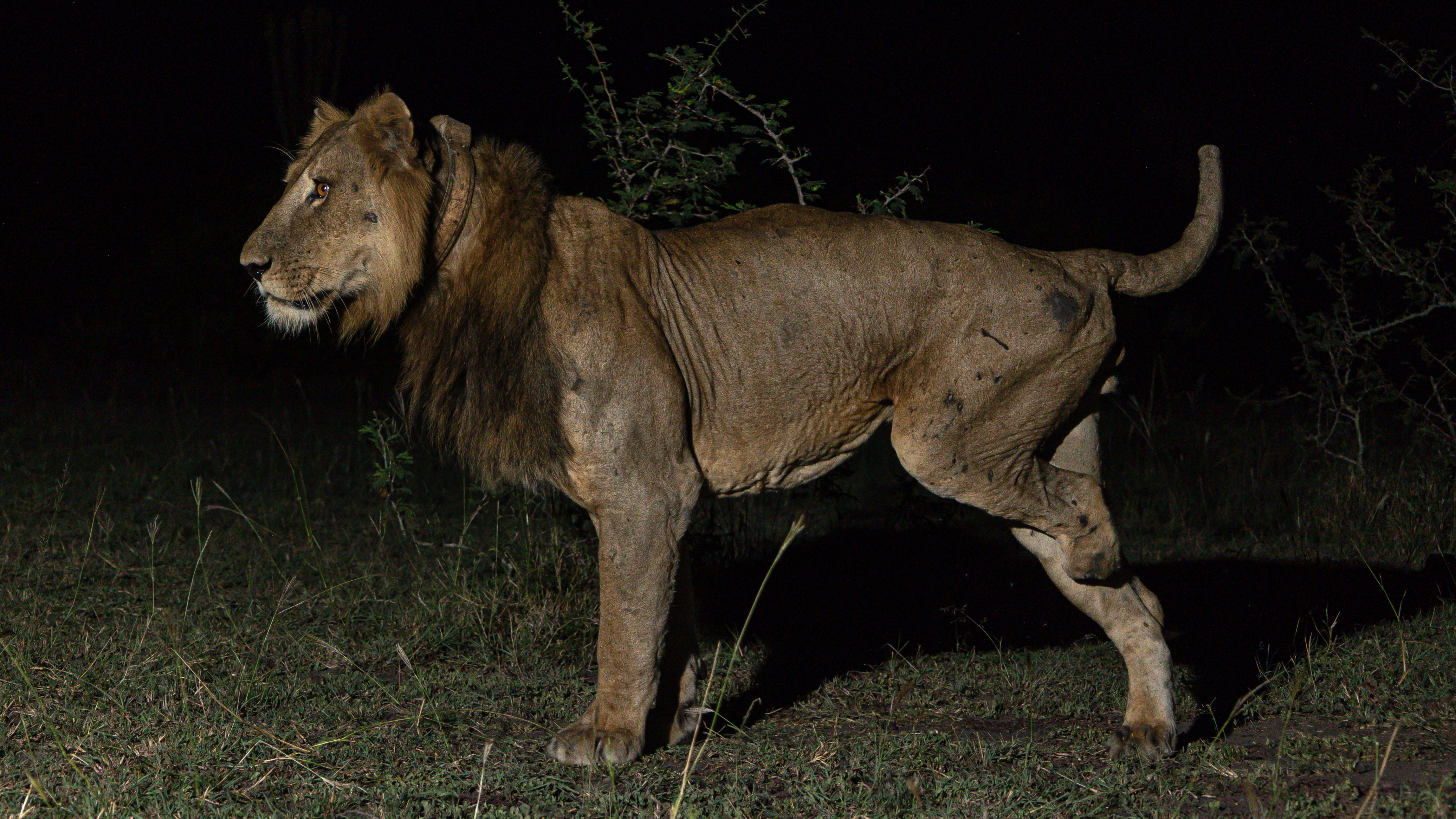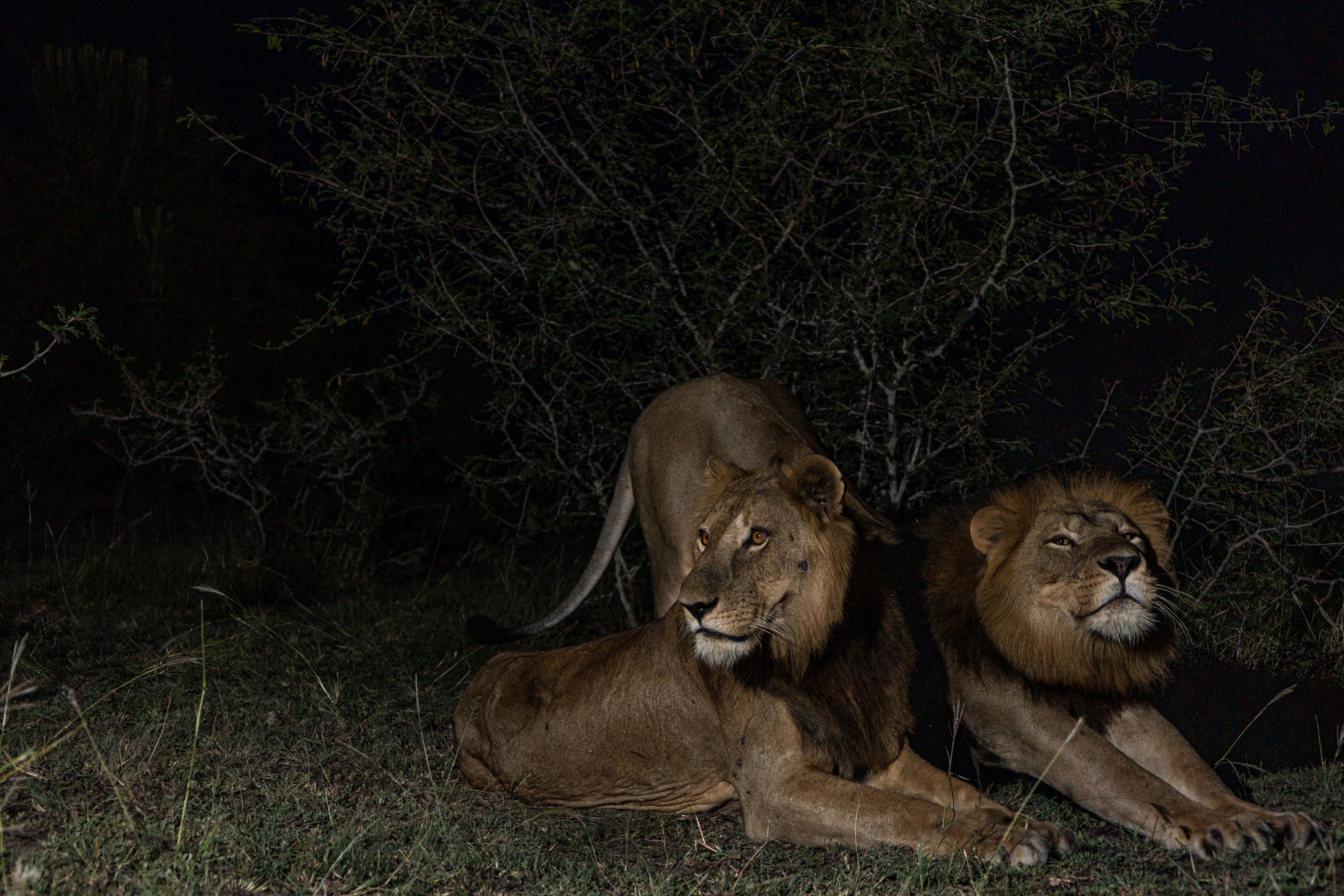'It's pretty incredible, the guy's got three legs': Watch lion looking for sex make record-breaking swim across treacherous river filled with crocs and hippos
Ugandan lion brothers Jacob and Tibu were filmed swimming a mile across the Kazinga Channel in Uganda — the longest swim ever recorded for the species —after getting their "butts kicked" by rival males.
A three-legged lion and his brother made a record-breaking swim across a river teeming with crocodiles and hippos in a desperate search for sex, researchers have revealed. The pair has now been seen traversing the treacherous Kazinga Channel in Uganda six times, including a nearly mile-long (1.5 kilometers) swim that was captured on film.

This is believed to be the longest swim by a lion (Panthera leo) ever documented: Normally, lions' maximum observed swim distances are around 330 feet (100 meters). The Herculean feat is even more remarkable considering that one of the brothers is missing a limb. "It's pretty incredible, the guy's got three legs," said Alex Braczkowski, lead author of a study documenting the encounter.
"He was swimming [at a] much slower speed compared to [his brother]. But he made it," Braczkowski, a researcher at Griffith University in Australia and scientific director of the Volcanoes Safaris Kyambura Lion Project, told Live Science.
Cameraman Luke Ochse filmed the two lions — Jacob, who lost his foot in a poachers' trap, and Tibu — swimming across the channel that connects the George and Edward lakes on Feb. 1 with a drone carrying a thermal camera. The big cats initially attempted the swim three times (the first attempt captured in the footage above) but were forced to turn back after encountering either hippos (Hippopotamus amphibius) or Nile crocodiles (Crocodylus niloticus), both of which can kill lions in the water.
The study, which was partially funded by Northern Arizona University, is due to be published in the journal Ecology and Evolution.
Related: Watch tigress and her cubs feasting on crocodile they killed in rare footage
Jacob and Tibu are in a precarious position in their homeland. The lion population in the region has been decimated over the last few decades, mainly driven by human-wildlife conflict and poaching, Braczkowski said. There are estimated to be around 40 lions left in the Queen Elizabeth National Park, and the population is under pressure from a sex ratio problem. In a healthy lion population, females outnumber males two to one. But among this Ugandan population, there are two times more males than females, putting huge pressure on the males to find a mate.
Sign up for the Live Science daily newsletter now
Get the world’s most fascinating discoveries delivered straight to your inbox.

The brothers made the initial swim because there were no females in their territory. They then had to make a return journey — which was captured on film — after a clash with two other groups of males. "They came in and were trying to challenge for territory and got their butts kicked," Braczkowski said. "So that's why they swam back."
Jacob and Tibu are closely monitored and are seen on a daily basis. Since the footage was captured, they have swum back across the channel once again on their quest for sex. "The guys are like 'screw it, we have to swim, we have to find females, this is the only way we're going to reproduce … it's either our genes live on or we die,'" Braczkowski said.

Hannah Osborne is the planet Earth and animals editor at Live Science. Prior to Live Science, she worked for several years at Newsweek as the science editor. Before this she was science editor at International Business Times U.K. Hannah holds a master's in journalism from Goldsmith's, University of London.









